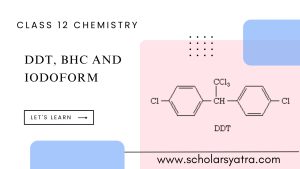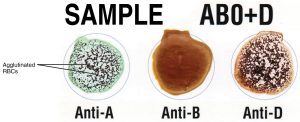In C programming, functions play a crucial role in organizing and structuring code. The fundamental functions in c programming allow programmers to break complex problems into smaller, manageable pieces by grouping statements together, enhancing code reusability, and simplifying debugging. A function is a block of code that performs a specific task when called. C provides both predefined functions (like printf() and scanf()) and allows the creation of user-defined functions.
Table of Contents
ToggleLet’s explore the concept of functions in C programming in detail.
Why do programmers use Functions?
Functions offer several advantages:
- Modularity: Breaks a program into smaller, manageable tasks.
- Reusability: A function can be used multiple times without rewriting the same code.
- Easier Maintenance: If a function is modified, all instances where it’s used will reflect the change.
- Abstraction: Reduces the complexity of the code.
- Testing: Functions can be tested independently, improving code quality.
Different Types of Functions in C
There are two broad categories of functions in C:
- Library (Predefined) Functions: These are built into C libraries, such as
printf(),scanf(),sqrt(), andstrlen(). Library functions are already defined in the C libraries. This means that we do not have to write a definition or the function’s body to call them. - User-defined Functions: These are created by the programmer to perform specific tasks. This function increases the scope, functionality, and reusability of C programming as we can define and use any function.
Syntax of a Function
A function in C is defined using the following syntax:
return_type function_name(parameter_list) {
// function body
// statements
}
Explanation of the above code:
- return_type: Specifies the type of value the function returns (e.g.,
int,float,voidif no value is returned). - function_name: Identifier used to refer to the function.
- parameter_list: The arguments passed to the function (optional).
- function body: Contains the actual code that gets executed when the function is called.
Components of a Functions
A function consists of the following key components:
- Function Declaration (Prototype): A declaration tells the compiler about the function’s name, return type, and parameters. It is usually placed before the
main()function.return_type function_name(parameter_list);
- Function Definition: This is the actual implementation of the function, where the code to be executed is written.
return_type function_name(parameter_list) {
// Code to be executed
}
- Function Call: This is where the function is invoked or executed. It can be called multiple times in a program.
function_name(arguments);1. Example of a Simple Function
Let’s write a simple example to demonstrate the use of a user-defined function in C.
#include <stdio.h>
// Function Declaration
void greet(); // This function does not return any value (void) and takes no parameters.
int main() {
// Function Call
greet();
return 0;
}
// Function Definition
void greet() {
printf(“Hello, welcome to C programming!\n”);
}
The output is:
Hello, welcome to C programming!
Explanation of the above code is
- Function Declaration: The
void greet();line declares the function to the compiler before it is used inmain(). - Function Definition: The block of code in
void greet()defines what the function will do. - Function Call: In
main(), thegreet();call executes the function.
2. Functions with Parameters and Return Values
Functions can also accept parameters (inputs) and return values (outputs). Let’s look at an example where a function adds two numbers and returns the result.
#include <stdio.h>
// Function Declaration
int add(int a, int b); // Function returns an integer and takes two integer parameters.
int main() {
int result;
// Function Call with arguments
result = add(5, 7);
printf(“Sum: %d\n”, result);
return 0;
}
// Function Definition
int add(int a, int b) {
return a + b; // Returns the sum of a and b
}
The Output is:
Sum: 12
Explanation of the above code is
- Parameters: The function
add(int a, int b)takes two argumentsaandb. - Return Type: The return type int, is indicating that the function will return an integer value.
- Function Call: The
add(5, 7)passes 5 and 7 as arguments to the function, which returns the sum.
Types of User-defined Functions in C
Functions can be classified based on the presence of parameters and return values. There are four combinations of user-defined functions in c programming:
- No parameters, no return value: The function performs a task but does not accept inputs or return a value.
void display() {
printf("Hello World!");
}
- Parameters, no return value: The function accepts inputs but doesn’t return a value.
void display(int a) {
printf(“Value: %d”, a);
} - No parameters, returns a value: The function does not accept inputs but returns a value.
int getNumber() {
return 5;
}
- Parameters, returns a value: The function accepts inputs and returns a value.
int sum(int a, int b) {
return a + b;
}
Recursive Functions in C
A function can call itself, and this technique is called recursion. Recursive functions are useful in tasks like calculating factorials, generating Fibonacci sequences, and solving complex mathematical problems.
Here’s an example of a recursive function to calculate the factorial of a number:
#include <stdio.h>
// Function Declaration
int factorial(int n);
int main() {
int number = 5;
// Function Call
printf(“Factorial of %d is %d\n”, number, factorial(number));
return 0;
}
// Recursive Function Definition
int factorial(int n) {
if (n == 0) {
return 1; // Base case: factorial of 0 is 1
} else {
return n * factorial(n – 1); // Recursive case
}
}
The output is:
Factorial of 5 is 120
Explanation of the above code is:
- The function
factorial()calls itself with a decremented value until the base case (n == 0) is reached. - This example shows how recursion simplifies problems like calculating the factorial of a number.
Function with Array as Parameter
A function can also accept arrays as arguments. Arrays are passed by reference, meaning the actual memory address of the array is passed, not a copy.
#include <stdio.h>
// Function Declaration
void printArray(int arr[], int size);
int main() {
int numbers[] = {1, 2, 3, 4, 5};
// Function Call
printArray(numbers, 5);
return 0;
}
// Function Definition
void printArray(int arr[], int size) {
for(int i = 0; i < size; i++) {
printf(“%d “, arr[i]);
}
}
The output is
1 2 3 4 5
Explanation of the above code is:
- The function
printArray()accepts an integer arrayarr[]and its sizesize. - Arrays are passed by reference, so the function modifies the original array.
Passing Functions as Arguments (Function Pointers)
In C, you can pass functions as arguments using function pointers. This is useful for implementing callback mechanisms and dynamic execution.
Functions in C help in breaking down complex problems into smaller sub-tasks, improving readability, maintainability, and reusability of code. They form the backbone of structured programming, enabling better abstraction and modularity.






